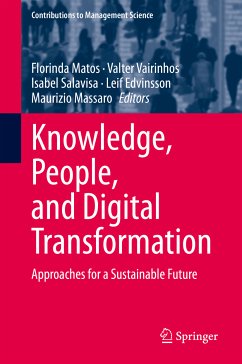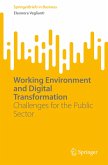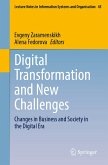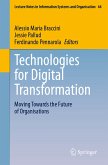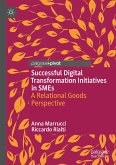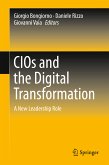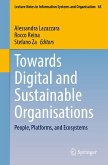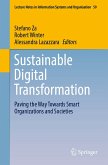The impacts of the digital transformation on society in general, and particularly on people's lives, are the subject of increasing debate among policymakers, researchers and industry. This book explores the challenges of this new revolution, identifies solutions, and demonstrates how knowledge management can enable the transition process associated with the digital transformation, guided by the principles of sustainability. Featuring contributions by experts from diverse areas of science and business - on topics ranging from the digital transformation of knowledge management in the public sector, to the creation of sustainable smart cities, regions and countries, and from using AI for business models to food security - it provides a comprehensive discourse on the digital transformation's impacts on employment, education, governance, social life, sustainability, values, the economy and democracy.
Dieser Download kann aus rechtlichen Gründen nur mit Rechnungsadresse in A, B, BG, CY, CZ, D, DK, EW, E, FIN, F, GR, HR, H, IRL, I, LT, L, LR, M, NL, PL, P, R, S, SLO, SK ausgeliefert werden.

